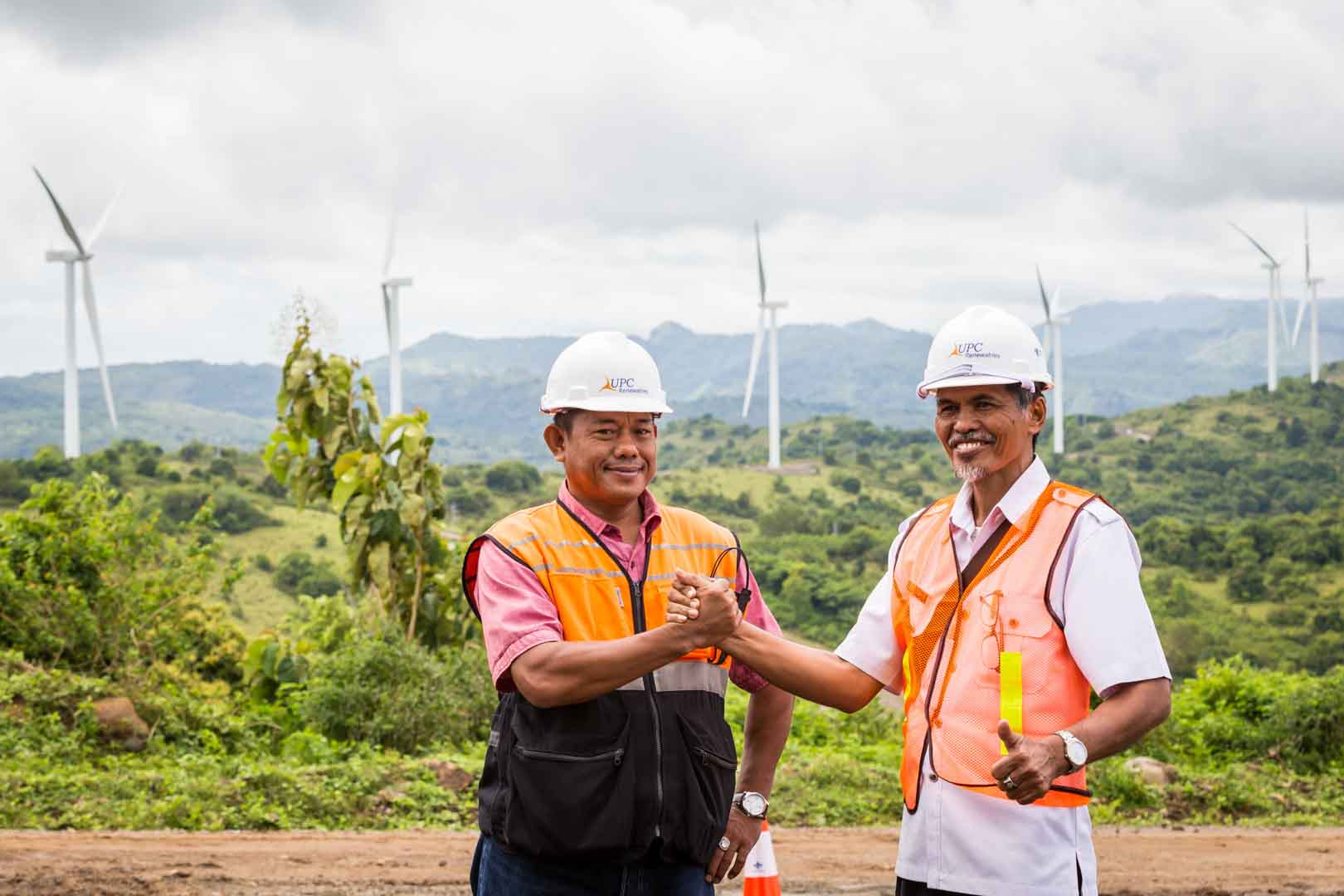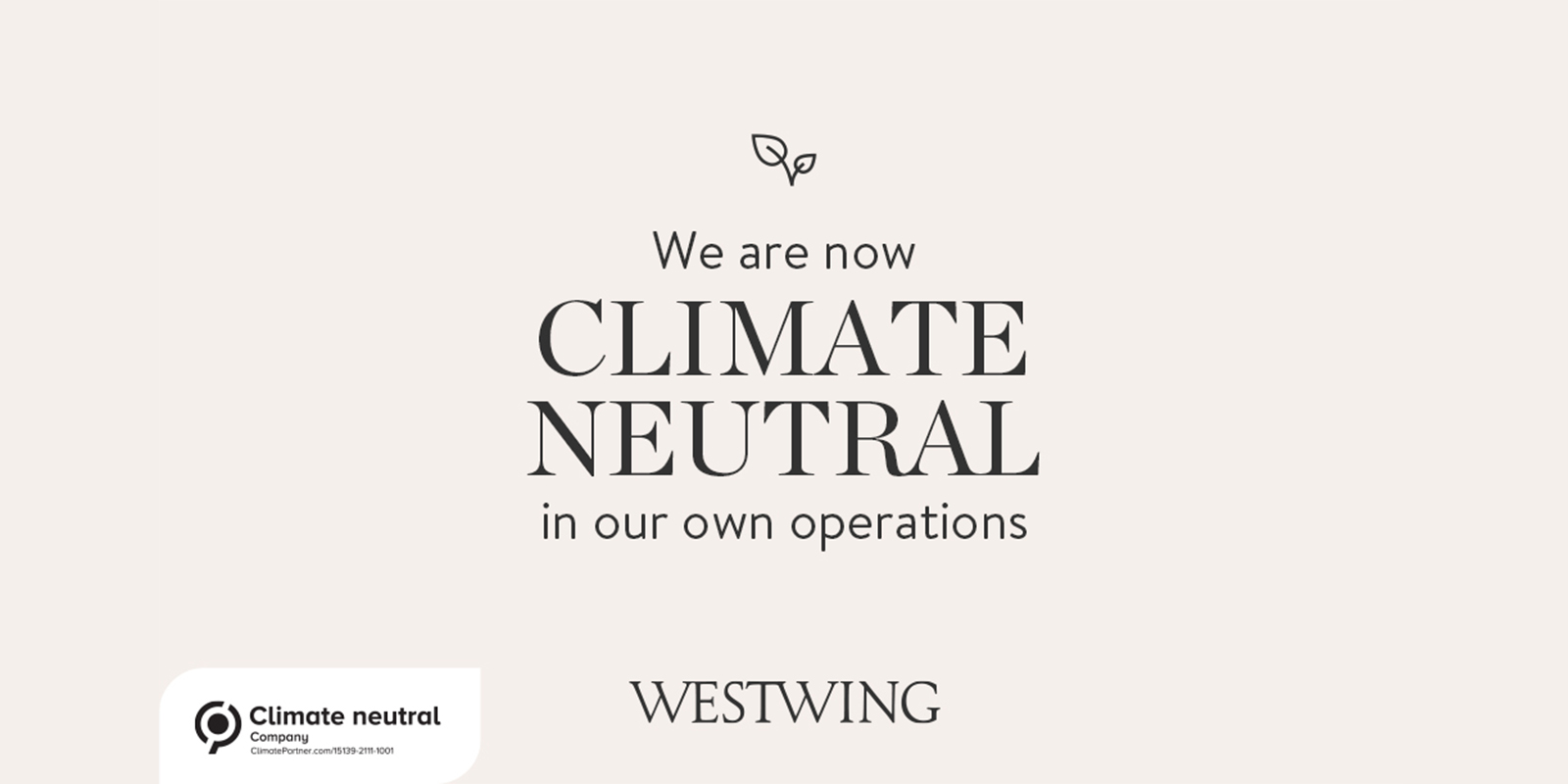Munich, 3rd January 2022. Climate change is one of the greatest environmental threats of our time and its prevention is a major focus for Westwing. The company is committed to actively reducing its carbon emissions to contribute to climate protection and reduce its environmental impact. Westwing is now climate neutral in its own operations by offsetting its carbon emissions through investments in climate projects around the world.
Westwing teamed up with ClimatePartner, a third-party company for offsetting carbon emissions, to support climate protection projects. These projects help counteract the release of greenhouse gas emissions, while providing lasting social, economic and environmental benefits. Westwing carefully selected projects focused on promoting renewable energy sources and preserving or renewing forest areas, such as operation of wind farms, expansion of solar energy and the support of small farmers in forest areas. One of the supported Gold Standard certified climate projects is a wind farm in Sidrap in Indonesia. Gold Standard is a certification mark of the non-profit Gold Standard Foundation and ensures that carbon credits are real, verifiable and that these projects make a measurable contribution to sustainable development. Westwing’s investment in the project enables the construction and operation of the wind farm which contributes to increasing the share of renewable energy in Indonesia’s energy mix while reducing dependence on electricity imports.
 https://www.climatepartner.com/
https://www.climatepartner.com/
Westwing’s next steps on sustainability
Climate and energy is a main focal point of Westwing’s 2030 sustainability strategy. Next to offsetting all emissions from own operations (scope 1 and 2, as defined by the Greenhouse Gas Protocol, a global standard for measuring greenhouse gas), Westwing additionally offset parts of indirect emissions (scope 3) that include emissions from e.g. business travel and employee commuting. Over the next few years, the company will further focus on reducing and avoiding emissions. Westwing has already started to work towards switching to renewable energy sources across its warehouses and offices. Westwing will set Science Based Targets by 2023 based on the guidelines of the Science Based Targets initiative. The non-governmental organization helps companies align their efforts to cut greenhouse gas emissions with climate science and the Paris Climate Agreement, to limit the increase of the global average temperature to 1.5°C. “Addressing our carbon emissions is at the very core of our 2030 sustainability strategy. We are excited to already be in a position to offset a significant part of our emissions as we are gearing towards establishing concrete science-based emission reduction targets,” says Erasmia Kitou, Head of Sustainability at Westwing. Sustainability is at the core of Westwing. Reducing carbon emissions is only one of the many sustainability targets that Westwing commits to. Other objectives include the reduction of the environmental impacts of the packaging used for its products, and the increase in the share of responsibly sourced materials (e.g. certified sustainable wood).
About Westwing
Westwing is the European leader in inspiration-based Home and Living eCommerce with EUR 433 million of revenue in 2020. Through its ‘shoppable magazine’, Westwing inspires its loyal Home Enthusiast customers with a curated product selection and combines that with gorgeous content. With unparalleled loyalty, Westwing is generating more than 79% of orders from repeat customers. Westwing’s mission is: To inspire and make every home a beautiful home. The company was founded in 2011 and is headquartered in Munich. Westwing went public on the Frankfurt Stock Exchange in October 2018 and is active in eleven European countries.
